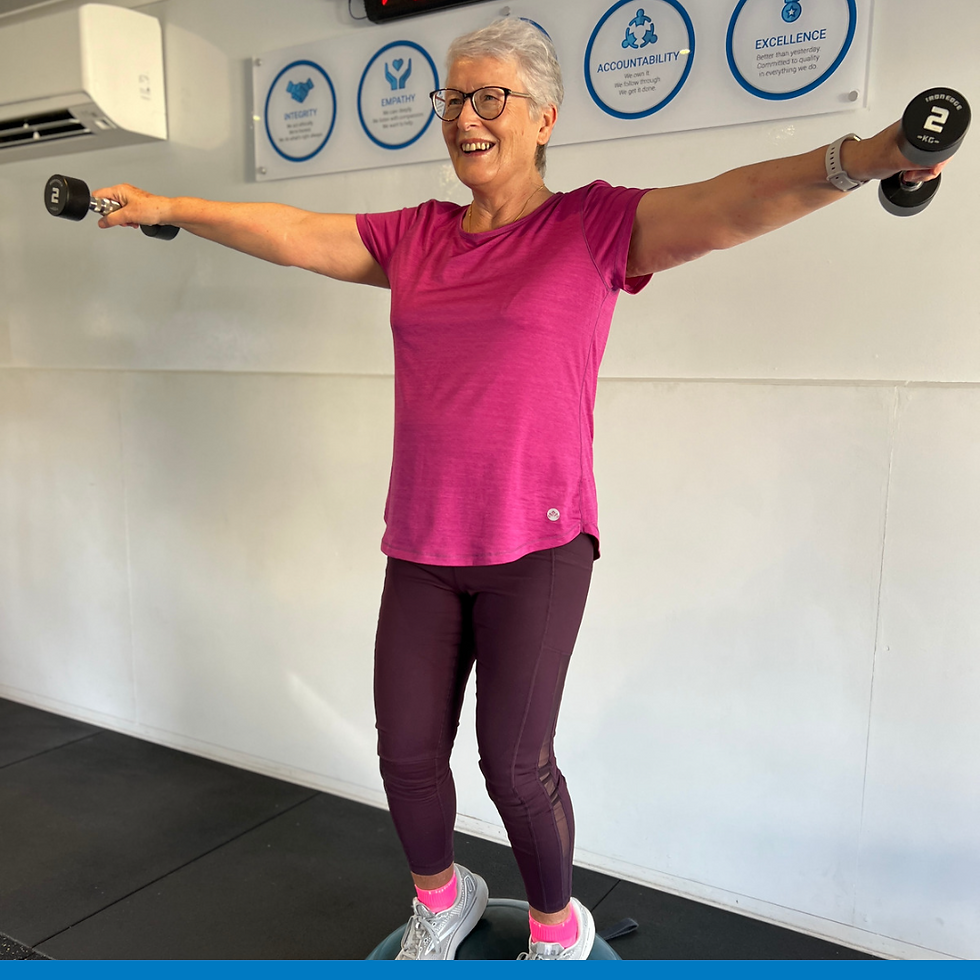Should I see an exercise physiologist?
- Trent Malcolm
- Dec 13, 2020
- 2 min read
There are many reasons why you may benefit from seeing an exercise physiologist. Here at Active One Group, one of the key services we provide is exercise physiology and we are always looking to educate our clients on the importance of exercise. To help you form a clearer understanding of exercise physiology, our team has put together a simple summary below.
What does an exercise physiologist do?

An accredited exercise physiologist specialises in clinical exercise aimed to prevent or treat chronic illness, injury, pain and/or disability. An exercise physiologist also helps people perform at their peak, regardless of age.
An exercise physiologist will provide exercise-based recommendations including physical activity and lifestyle modification after doing a thorough health and fitness assessment. An accredited exercise physiologist can operate from a range of different health settings including hospitals, fitness centres, professional sporting clubs, aged care facilities or in our case, multidisciplinary clinics.
Some additional services an exercise physiologist may provide include health coaching, physical rehabilitation and health education, often targeting peoples’ motivation to change. An exercise physiologist will often provide clients with tailored exercise programs and assist with ways to reduce a sedentary lifestyle. Exercise physiology is a very broad health professional indeed.
When to see an exercise physiologist

There is a range of reasons why an individual will benefit from seeing an exercise physiologist. Exercise physiology can be a beneficial part of managing chronic diseases such as:
· Cardiovascular disease
· Cancer
· Depression & other mental health conditions
· Pulmonary disease
· Metabolic disease
Many accredited exercise physiologists will also assist with other areas including:
· Exercise recommendations for improving function and strength post-surgery
· Lifestyle modification advice
· Workplace assessments
· Functional capacity assessments
The difference between an exercise physiologist and a physiotherapist
Although there are many similarities between the two fields, exercise physiology and physiotherapy may be separated by a range of factors. The key element to remember when differentiating the two is that physiotherapists provide a diagnostic “hands-on” treatment, whereas exercise physiologists provide “hands-off” treatments. For example, physiotherapy will involve joint manipulation and massage. This is different from exercise physiology which involves treatment through clinical exercise/movement programs.
Do you think you would benefit from exercise physiology?
Here at Active One Group, we provide a range of exercise physiology services including exercise as a part of cardiac rehabilitation, cancer treatment, group and individualised exercise programs.
Located in Brighton and Frankston, we are also able to provide offsite services. If you would like to enquire about seeing an exercise physiologist or you are interested in any of our other services, be sure to get in touch with the Active One Group team today on 03 8707 0830.



4 Comments